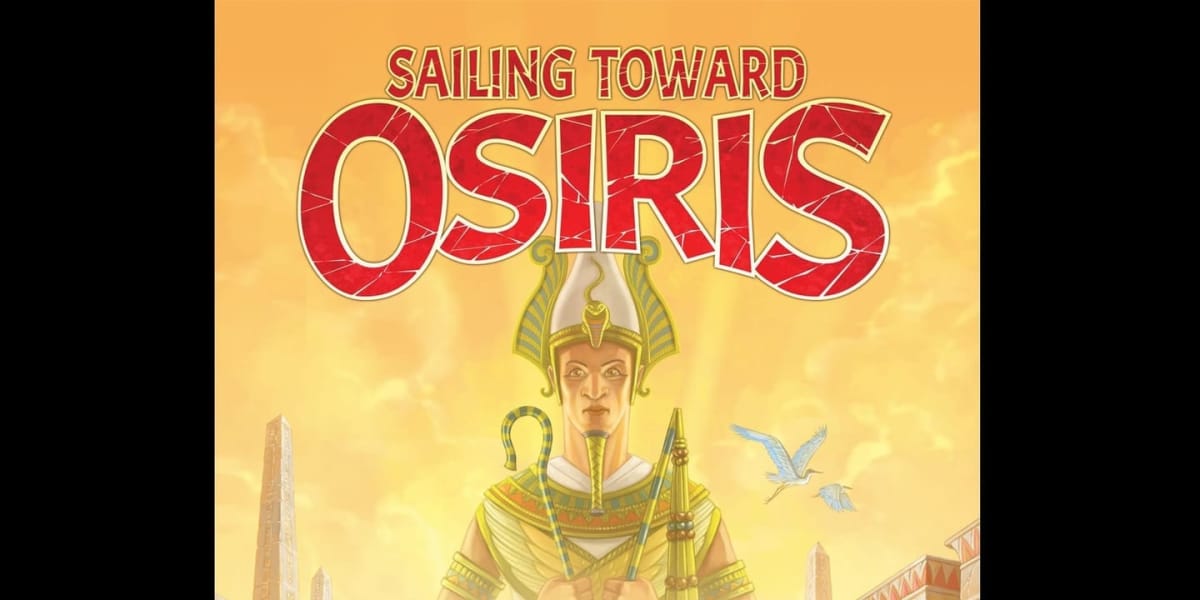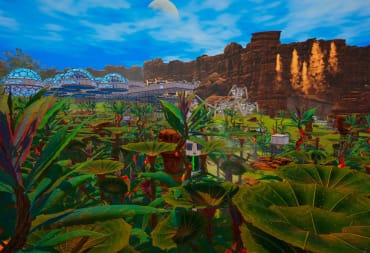There's something incredibly satisfying about experiencing a boardgame in both its prototype forms, and then again in its full-production glory. The first few times I played Sailing Toward Osiris I was playing the game to preview it before it went to Kickstarter to seek funding. During my time previewing the game there were some rules changes made that actually required that I print out a new piece of art and physically glue it onto the board to accommodate some rules changes that had been made by designer W. David MacKenzie and the crew at Daily Magic Games. Even with the last-minute rule patching and pre-production components the game was fun, and looked good on the table.
Now that production copies of Sailing Toward Osiris will be hitting store shelves, I'm revisiting the game in all of its shelf-ready glory and I have to say that Daily Magic Games continues to impress with the quality of the physical products that they deliver. The game looks great on the table, the components are chunky, colorful and satisfying, the art is thematic and bright and even the box insert is impressively produced. The rules for the production-copy of the game that I have are close to identical to my last play of the prototype version, which I liked quite a bit, so I don't have a huge amount to say that I didn't cover in my preview originally, although I will lay some of my thoughts out after now revisiting the game anew.
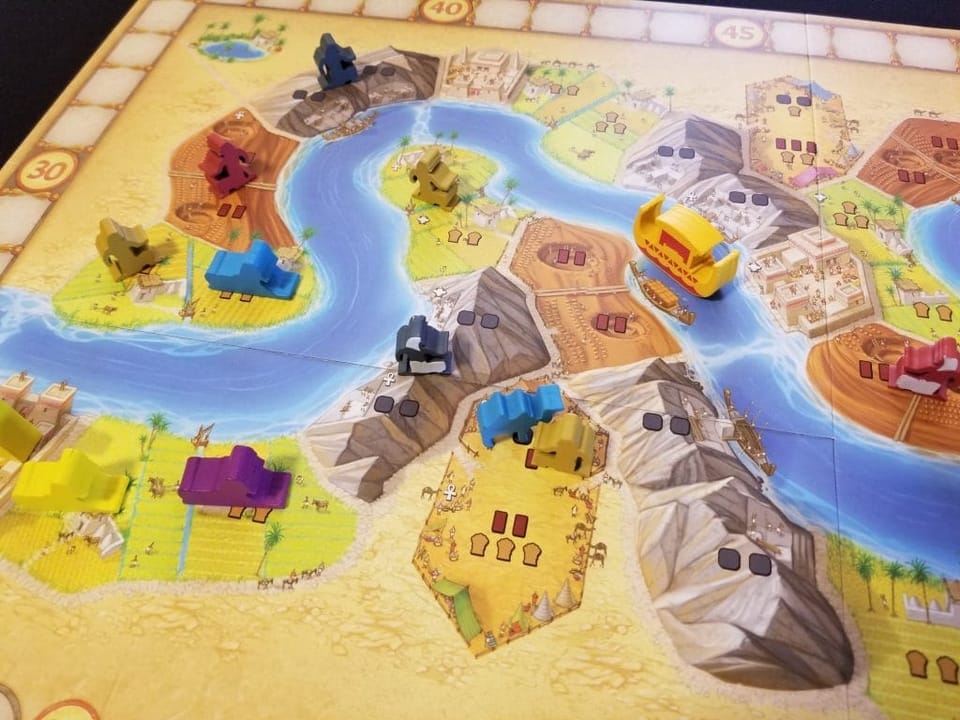
At first blush, Sailing Toward Osiris looks like a worker placement game, and technically it is, but it eschews a lot of the standard conventions of worker placement in interesting ways. The most obvious difference between this game and the standard worker placement game is that you don't simply have a pool of workers, rather every player shares a pool of workers, and the workers that each player has available are drawn randomly from a bag each round. Each worker is limited to a particular type of resource, so instead of being able to pick and choose what you'll use your workers for, you need to strategically decide exactly how to make the most out of the workforce that you end up with.
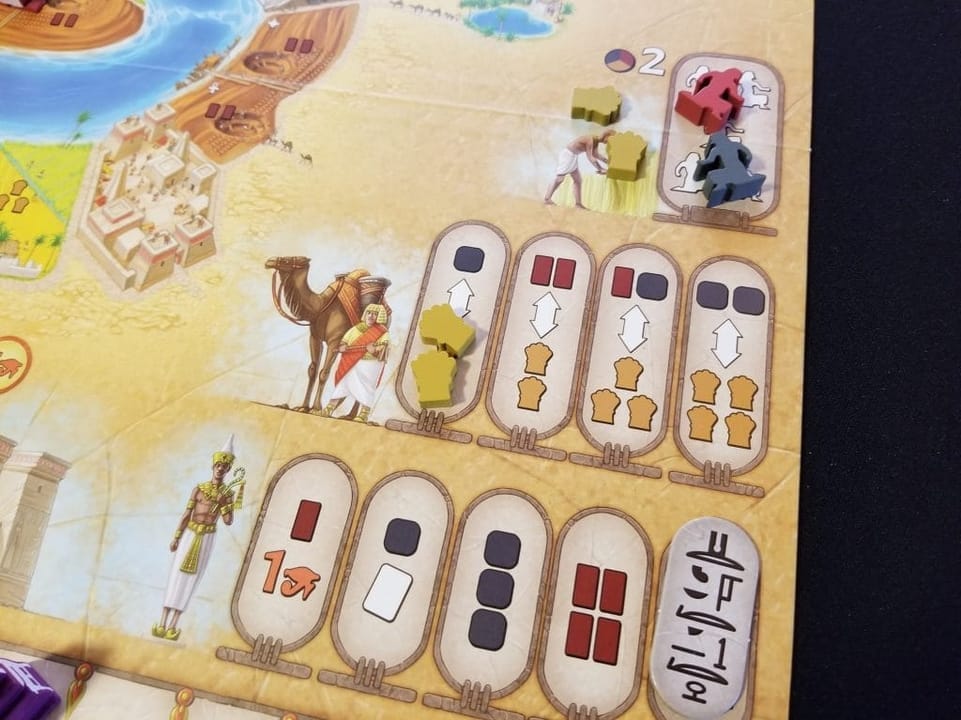
A second key difference in Sailing Toward Osiris is that the resources that you use in the game (grain, bricks and stone) are physically limited based on the number of players. Stockpiling goods isn't simply a matter of getting the resources you want in order to pursue the strategy you like, but it can actually be an offensive strategy to try to deny your opponents the resources that they will need. In most games we've played there have been at least a few rounds where one resource or another saw some serious scarcity.
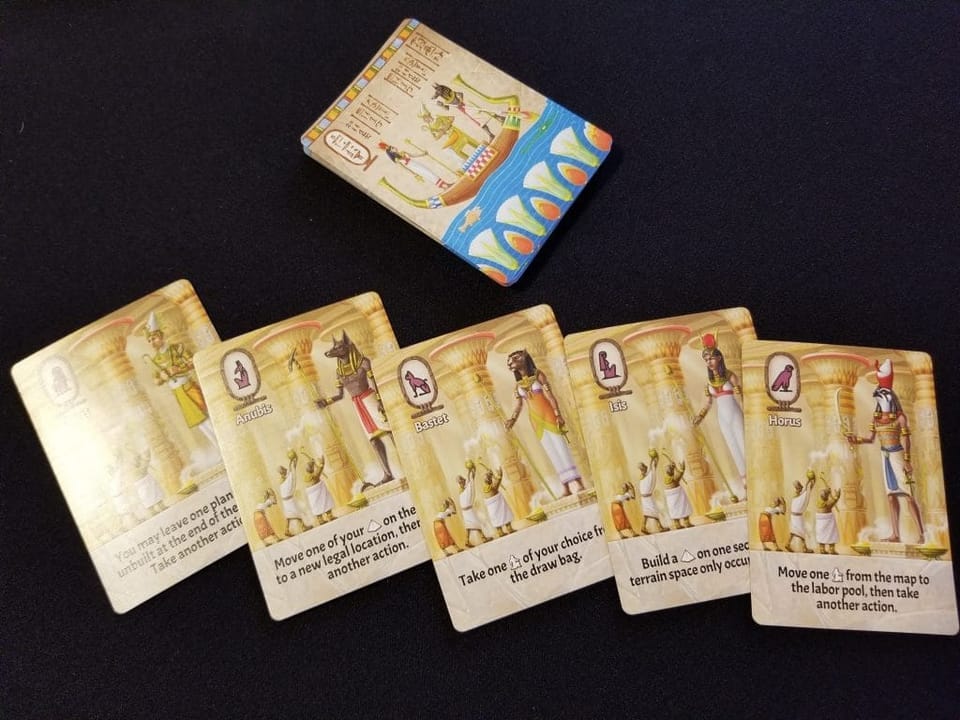
The resources aren't the only piece of the game with an element of scarcity. The spaces on the board where you place your workers and gain those resources are also where players build their monuments, which is the primary point-scoring mechanic in the game. The game is played over four seasons, with more and more sections of the board opening up as the game plays out, but positioning of monuments is important both because you remove the space in which you placed the monument from the pool of places to gather resources, but also because bonus points are awarded to people who can place their monuments in certain configurations. It isn't enough to simply gather the resources for a monument and then place it in any open space. If you want to be competitive, you will choose locations that give you and advantage while simultaneously blocking or hindering your opponents in some way, which is easier said than done.
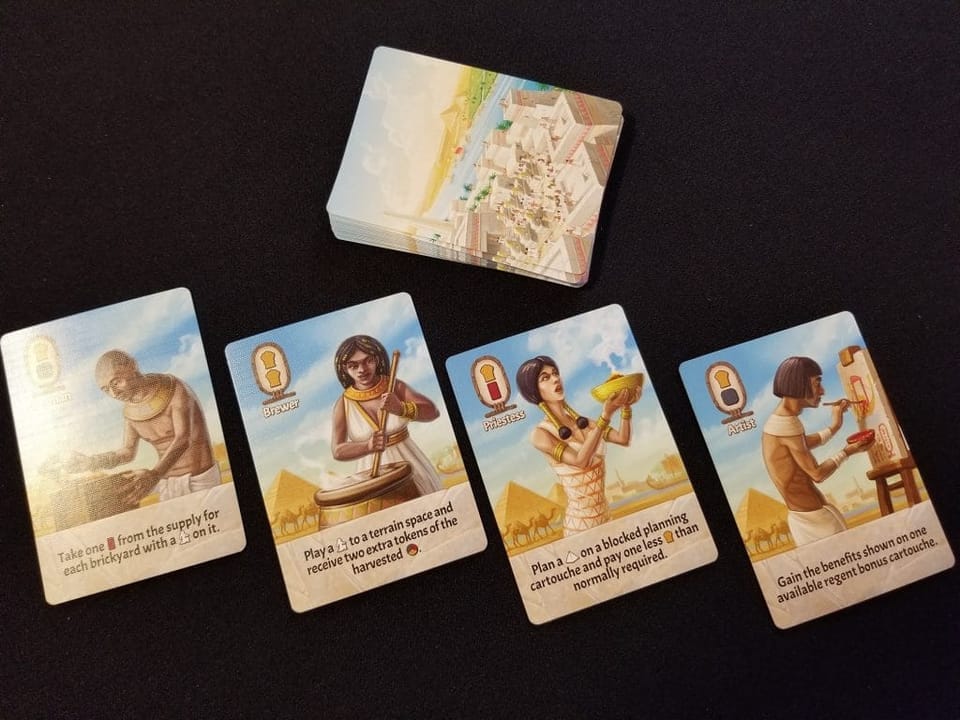
Due to the inherent nature of scarcity present in Sailing Toward Osiris, both in resources and in territory, it's a game more suited to competitive players than to people who prefer Euro-style games that allow players to pursue whatever strategy they see fit. It can be hard to formulate and execute a long-term plan in this game, which can be frustrating to some players. I played the retail version with a person who hadn't played the prototype version with me and, rather than feeling like the game was forcing them to think strategically at every turn, they told me that they felt like they were being limited and stymied at every turn by the other players. I couldn't argue, because the game really does force you to bump elbows with the other players and it actively allows you to deny options to your opponents if you make the right moves. If you are the type of player that likes to interfere with your opponents, and like the challenge of dealing with their attempts to interfere with you then you will most likely enjoy the strategic crunch of Sailing Toward Osiris.
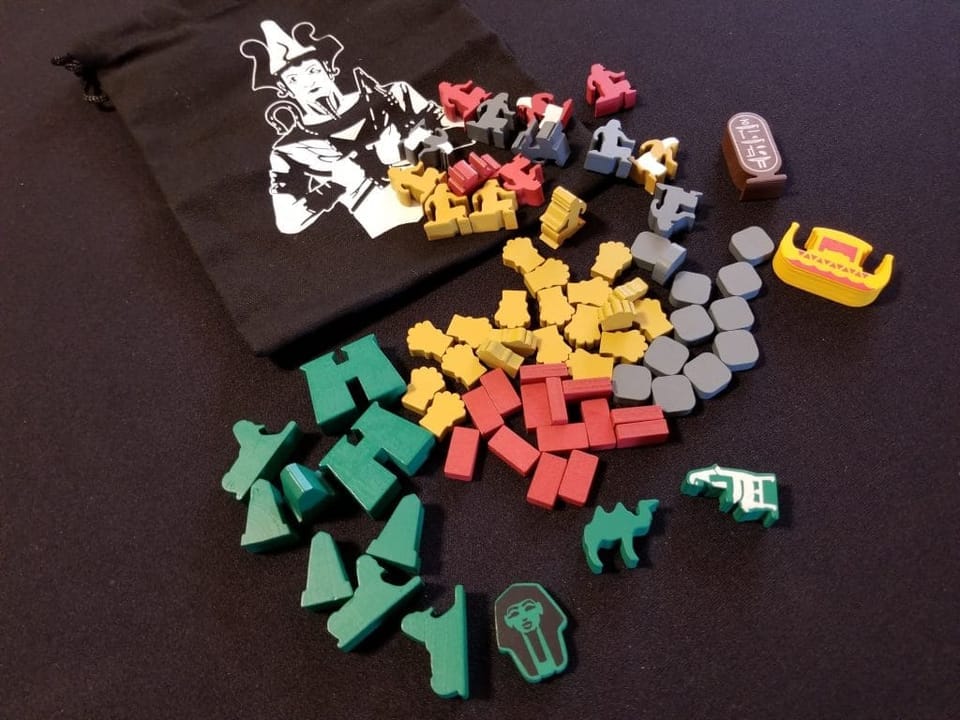
A note on player count: Sailing Toward Osiris can be played with 2 - 5 players, but it's best with higher player counts. When you play with fewer players, you use player-components from unused colors to block off some pre-determined spaces on the board to simulate the scarcity that would naturally occur in higher player-count games. It works just fine to use those limitations, but it doesn't feel as good or crunchy to begin the game with artificial limitations as it does to have those limitations occur naturally over the course of the game.
A note on “chrome”:
The components in Sailing Toward Osiris, including the box insert, are excellent. Daily Magic Games produce some of the nicest quality products on the market, and Sailing Toward Osiris is one of their nicest productions to date. The physicality of board gaming isn't as important as the game play, but it's always satisfying when the components are so nice that they are a joy to look at and play with.
The bottom line:
Sailing Toward Osiris is a game for competitive Euro Gamers who enjoy direct competition with their opponents. Resources are in high demand, and it often feels like there aren't enough to go around, so smart planning and the ability to adjust your plans on the fly are crucial. Added to the limited resource pool is the fact that you draw your workers from a bag at random means that long-term planning is very difficult in this game, which can turn some players off, but it's great for people who like to adjust their plans on the fly, and people who like being in situations where they have to make the most out of the options available to them.
Get this game if:
You like games that maintain a constant sense of tension between players.
You like games that force you to alter your plans based on what is available to you at any moment.
You like Euro Games that let you interfere with your opponents by blocking them or denying them resources.
Avoid this game if:
You prefer multiplayer-solitaire Euro Games that don't feature direct player interaction and tension.
You like worker placement games that allow you to build up vast quantities of resources.
You like games that let you plan long-term.
The copy of Sailing Toward Osiris used for this review was provided by Daily Magic Games.
Review Summary
Sailing Toward Osiris is a Euro Game for people who like to be in direct competition with the other players at the table. Everything is limited, from land to resources to available workers, and every action you take is likely going to interfere with your opponents in some way. Sailing Toward Osiris isn't a game for people who like to collect stuff, but rather it's a game for people who like to manage scarcity, and use it to their advantage.
(Review Policy)Have a tip, or want to point out something we missed? Leave a Comment or e-mail us at tips@techraptor.net
